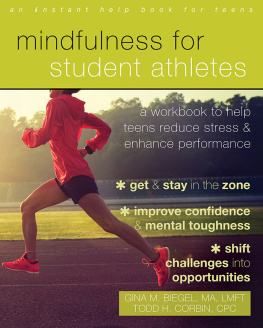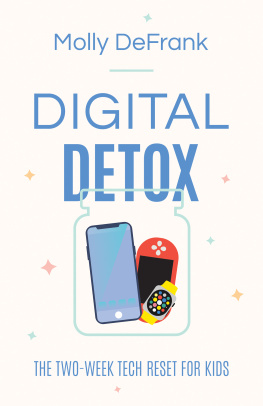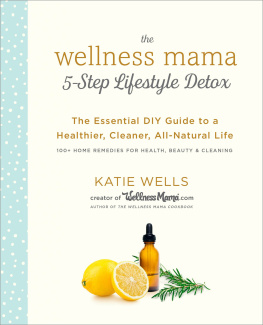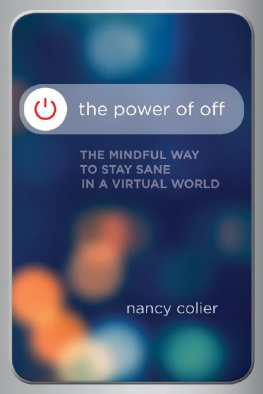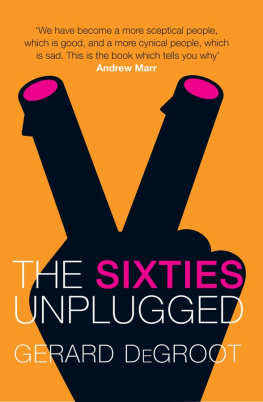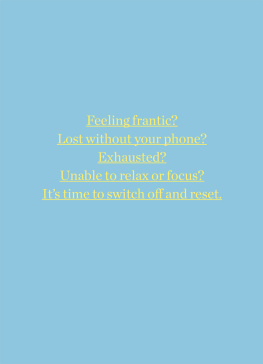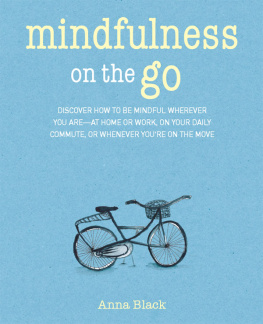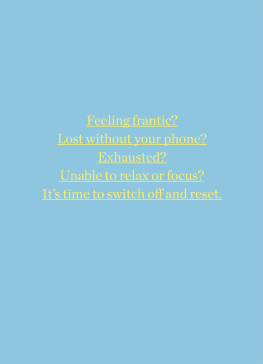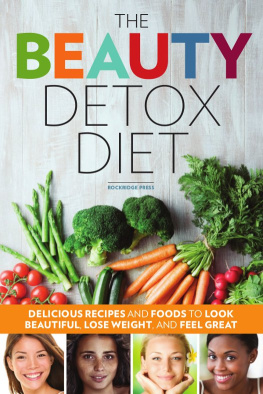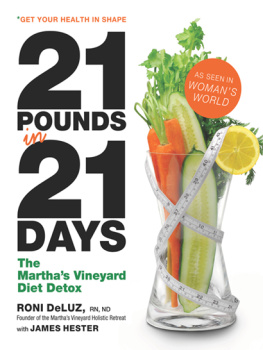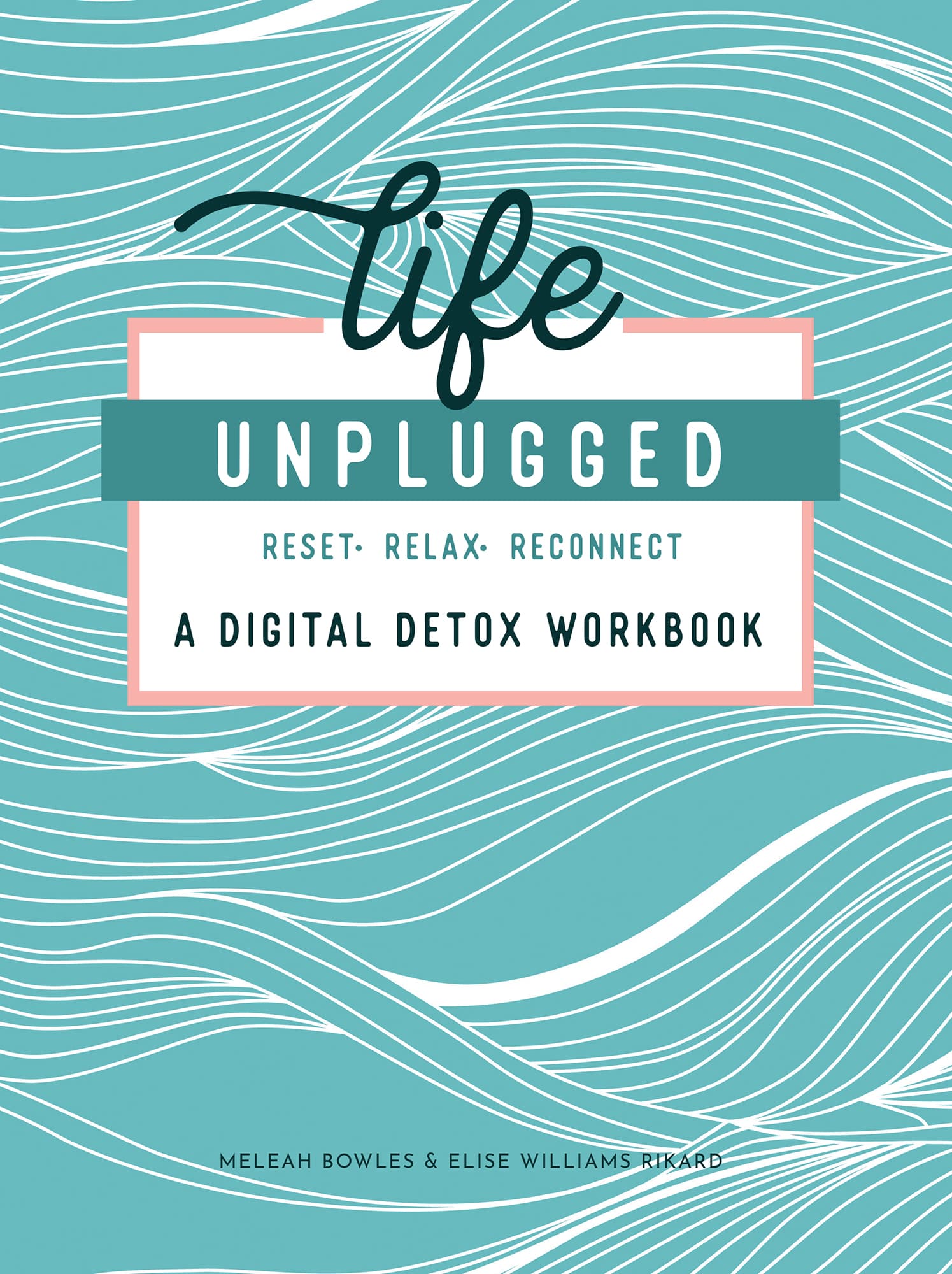contents
Guide
Life
UNPLUGGED
RESET RELAX RECONNECT
A DIGITAL DETOX WORKBOOK
MELEAH BOWLES & ELISE WILLIAMS RIKARD

Introduction
Meleah and Elise here! We're best friends, writers, editors, social media addicts, and TV-bingeing junkies. You could say technology is a pretty big part of every aspect of our lives. When we first heard about digital detoxing, we were not on board. We thought, "Well, we aren't addicted to our phones, social media, or any of that, so why bother detoxing?" Our phones aren't hurting anything, right?
We like getting our Monday-night TV fix. We like playing video games. We like keeping up with the latest celebrity news online. And honestly, how on earth could we completely unplug and take a "timeout" from everything and everyone? What did people even do before phones were smart and Netflix was a standard way to spend a Friday night?
But then we realized that's exactly the pointand maybe technology is harming us after all. The constant connection is literally messing with our brains. Being connected 24/7 honestly sounds like a good thing. You can answer every email the moment it hits your inbox. You can always check in on a friend and have a virtual chat. You can always keep up with the latest news, getting real-time updates on every single crisis.
The bad news is, staying tethered to your electronics means you never have time to shut down your brain. Filling every spare moment with chattereven with friendsleaves our lives lacking silence. Witnessing everything that goes on in the world and trying to care about every single cause is honestly exhausting and emotionally draining. After all, we're only human. While it's good to care about and help others, some days all you can do is come home after work and feed yourself. And that's okay!
From a self-esteem standpoint, it stands to reason that comparing yourself to every perfect selfie, every snapshot of someone's life or lifestyle blog is just fuel for the critical voice in your head. As far as our relationships with each other go, if we're spending all of our time binge-watching, then we aren't spending time with our friends.
By this point, unlike celebrity-endorsed detox tea (we've tried themthey're not tasty and the side effects are unpleasant), a digital detox sounds kind of nice, right? We think so, and while writing this book, we spoke to several therapists and digital detox experts who think so too. You'll get their tips and advice on breaking the digital cycle (as well as our own) and also a few challenges we put together for you along the way!
SO PUT DOWN THE PHONE,
TURN OFF THE TV, AND
pay attention.
Digital Detox Defined
Open Facebook and someone is either getting engaged or sharing opinions no one asked for. Scroll through your Instagram feed and that one girl from high school is promoting the latest multi-level marketing product and bragging about her "hustle." Pop over to Twitter and you'll be bombarded with celebrities yelling at other celebrities for not doing (read: tweeting) enough to solve the world's problems.
It never seems to slow down or get less frustrating. (Not that it stops us from logging in, of course.) Some days, all the technology can start to feel, well, toxic. And when something is toxic, the best thing to do is take a break.
For this particular technological toxicity, we're proposing a "digital detox." Digital detox means different things to different people. For some, it means completely unplugging from everything digitalyour phone, your tablet, your TV, your video games, your laptop, everything. For others? It can be taking social media out of their daily routine or simply spending less time on their phone.
Digital detoxing, the way we see it, is taking a break from your digital reality to focus more on your actual reality. As with any detox, you'll be ridding yourself of toxinsin this case, digital toxinsto become a happier, healthier person.
The hope is that once you've purged yourself of these digital toxins, you'll be able to more clearly understand the effect that technology is having on you personally, as well as get chores done that you've been neglecting, and ultimately learn to live more in the moment.
So why do you need a break in the first place? We're essentially all living in a collective Digital Danger Zone. There's research for days (as in, it would take literal days for us to list all of it here) demonstrating that too much technology time is bad for your mental health, your work, and your relationships.
One example is a study by Andrew K. Przybylski and Netta Weinstein published in 2012 that concluded that just having your phone near you can have "negative effects on closeness, connection, and conversation quality," interfering with your relationships as a whole. Think of the last time you went to grab lunch or coffee with a friend and they had their phone in their hand. Did you feel like you had their full attention? Or vice versa? Probably notmore likely, even if you weren't aware of it, you were wondering when one of your phones was going to vibrate.
While phones can help keep us connected to those we love who are far away, they're not so good for connecting with the people who are right in front of your face.
Phones also aren't good to have by your side when you're trying to focus. Think about the last time you worked on a project or had a deadlinehow many times were you interrupted by your phone?
Technology in general functions as a distraction. If you're taking notes with your laptop, it's tempting to open a new tab and before you know it, you're off-task. On the other hand, if you're writing in a notebook, distractions are further away. Watching TV while working on a project can quickly turn into just watching TV. That's great if your goal is to watch more TV, but not so great if you're trying to actually get things done.
And there's more where that came from.
The Center for Humane Technology has compiled conclusions from dozens of sources into a project titled "Ledger of Harms." There were some common themes in all of this research. The main takeaways are that overuse of technology and over-immersion in the digital world has the potential to harm our attention span, mental health, relationships, and children among other things.
For example, they found that when a notification comes in, most people will check that notification within a few minutes. Even if they wait longer to check notifications, most people report feeling distracted and less able to get their focus back to the task at hand. This lack of attention negatively affects our work, productivity, and is a big reason why technology use can negatively affect relationships. Interpersonal relationships thrive when two people invest the time and attention to really listen to each other and understand the other's point of view.
And when we chatted with Life Coach, Vikki Yaffe, about the ways phones and technology affect our mental health, she confirmed that we weren't alone in being distracted by our phones. Yaffe says, "Even when there's no sound coming from the phone, there is the on-going possibility that there will be. The problem is not that technology exists, it's that we are using it 24/7." It's essentially turning us all, she says, into "one big stress time bomb."
In fact, our phones contribute to major anxiety by encouraging avoidance, disrupting sleep, and fostering a technology dependence.


